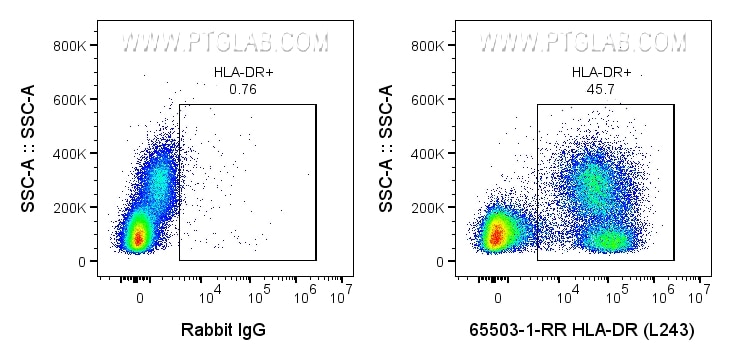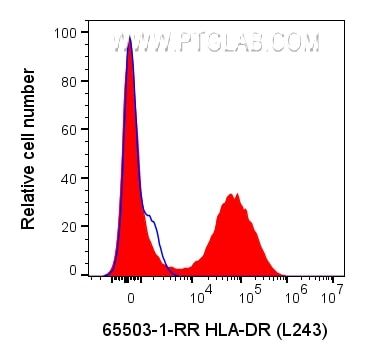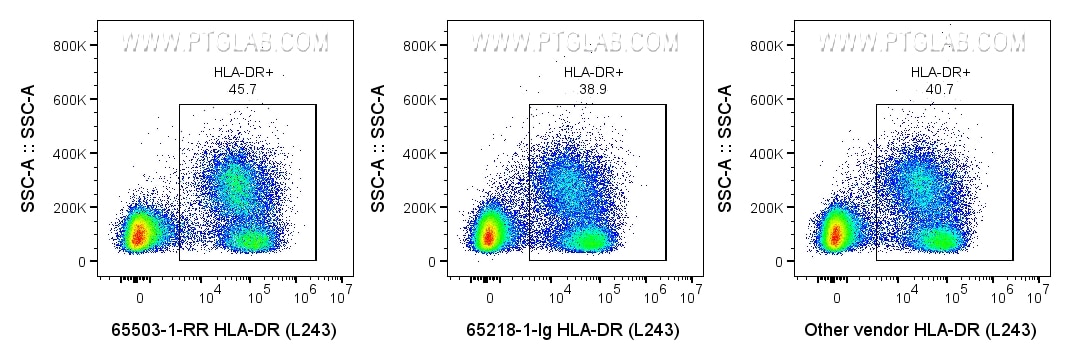Validation Data Gallery
Tested Applications
| Positive FC detected in | human PBMCs |
Recommended dilution
| Application | Dilution |
|---|---|
| This reagent has been tested for flow cytometric analysis. It is recommended that this reagent should be titrated in each testing system to obtain optimal results. | |
| Sample-dependent, Check data in validation data gallery. | |
Product Information
65503-1-RR targets HLA-DR in FC applications and shows reactivity with human samples.
| Tested Reactivity | human |
| Host / Isotype | Rabbit / IgG |
| Class | Recombinant |
| Type | Antibody |
| Immunogen | Human lymphoblastoid B-cell line RPMI 8866 相同性解析による交差性が予測される生物種 |
| Full Name | major histocompatibility complex, class II, DR alpha |
| Calculated molecular weight | 254 aa, 29 kDa |
| GenBank accession number | BC032350 |
| Gene Symbol | HLA-DRA |
| Gene ID (NCBI) | 3122 |
| ENSEMBL Gene ID | ENSG00000204287 |
| RRID | AB_3670291 |
| Conjugate | Unconjugated |
| Form | Liquid |
| Purification Method | Affinity purification |
| Storage Buffer | PBS with 0.09% sodium azide |
| Storage Conditions | Store at 2-8°C. Stable for one year after shipment. |
Background Information
HLA-DR is a member of MHC class II moleculesencoded by the human leukocyte antigen complex on the region 6p21.31 of chromosome 6. HLA-DR is composed of two non-covalently associated transmembrane glycoproteins (the α and β chains), and is primarily expressed on B lymphocytes, monocytes, dendritic cells and thymic epithelial cells (PMID: 33125816). HLA-DR participate in the antigen presentation to CD4+ or CD8+ T cells and is postulated as a general biomarker of sepsis-induced immunosuppression (PMID: 28199206, 32421903). The Anti-Human HLA-DR antibody, clone L243, is derived from Human lymphoblastoid B-cell line RPMI 8866.
Protocols
| Product Specific Protocols | |
|---|---|
| FC protocol for HLA-DR antibody 65503-1-RR | Download protocol |
| Standard Protocols | |
|---|---|
| Click here to view our Standard Protocols |


